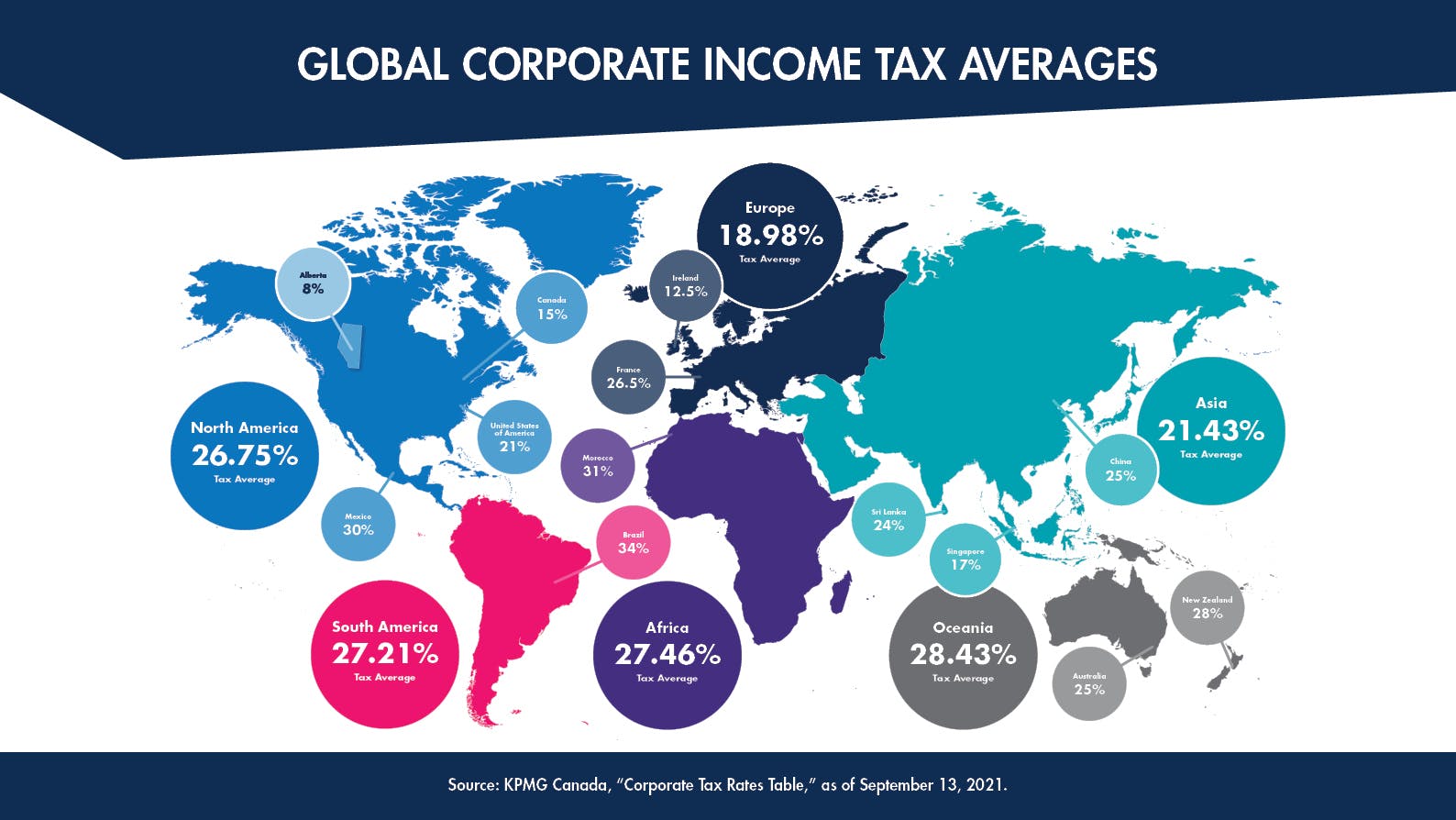Encouraging business growth and transformation will be central to our economic recovery and critical to making Calgary and Alberta the choice for national and international capital investment. While investments in community well-being matter, corporate tax critically impacts our ability to compete and grow, both here in Alberta and around the world.
In Alberta, the corporate income tax rate has been the subject of debate over the past few years. In 2015, the provincial government introduced a plan to raise the corporate income tax rate from 10 per cent to 12 per cent. After the 2019 election, Premier Jason Kenney put in place a series of legislative changes that reduced the provincial corporate income tax rate to its current level of eight per cent. Federally, Canada has a net tax rate of 15 per cent as of 2019.
As we increasingly compete in a global market, we need to ensure that corporate taxes enhance competition for business. The globalization of our economy, particularly as the pandemic sped up digitization and changed the way we work, means the current global tax system requires an overhaul. Businesses are increasingly more mobile and willing to move to where they can compete, raising questions about the opportunities and implications of a global corporate tax system.
Where we are today
Around the world, corporate tax systems and rates vary widely. This presents some challenges. Broadly, many globally competitive firms often locate to lower tax jurisdictions. This creates instability for government revenues, with estimates suggesting between $500 billion and $600 billion a year in lost corporate tax revenues for governments around the globe.

A new way forward?
To level the playing field around the world, the Organization for Economic Co-operation and Development (OECD) – an intergovernmental economic organization of 38 member countries – has spearheaded a new initiative to harmonize global corporate tax systems. After years of work, 130 countries, representing more than 90 per cent of the world’s gross domestic product (GDP), have agreed to a new approach. The new global system focuses on two pillars, where a host of changes may occur across countries, with specific impacts to Canada given provincial and federal tax rates:
The OECD's approach
Pillar One ensures fairer distribution of profits and taxing rights among countries with respect to the largest multinational corporations, including digital companies. The measures would re-allocate some taxing rights over multinational corporations from their home countries to the markets where they have business activities and earn profits, regardless of whether firms have a physical presence there.
Pillar Two seeks to establish a global minimum corporate tax rate of 15 per cent at the national level. Importantly, the provincial corporate income tax rate would not be impacted as provincial tax rates apply in addition to federal tax rates.
Next up: moving towards global agreement & why it matters
Earlier this year, Canada decided to adopt these two pillars. With many of our economic competitors also signing on, including the European Union, United Kingdom, United States, Brazil, India, Russia, and China, this stands to be a decision will have implications for Calgary’s business community.
Implications for business
The OECD points to anticipated increases in certainty and stability in the global economy and for government revenues if the framework is implemented due to increased predictability and a level playing field.
Canada might stand to increase certainty and stability for Canadian business community even further, given that the net corporate tax rate is already at 15 per cent. As the proposed agreement stands in September 2021, Canada already meets the minimum rate.
There’s good reason to suspect the global community will move towards making this approach a reality. Finance ministers from the Group of 20 (G20) supported the OECD approach to system-wide reform in Venice in July, paving the way for the potential final endorsement by the full G20 summit of country leaders in October. This agreement could mean that we see the development of a multilateral convention – strong suggestions for individual action and legal changes countries around the world ought to make. Ultimately, however, the minimum corporate tax level would be adopted by each country through national legislation on a voluntary basis.
Watching closely
From energy to agriculture to technology and innovation, global trade and international economic engagement are at the heat of Calgary’s economy. Our economic story means that our economy and future are highly trade exposed. With policies like global corporate tax changes on the horizon, its clear international policy and globalization impacts the future of not only Canada, but many of the business in our core and down the street.





